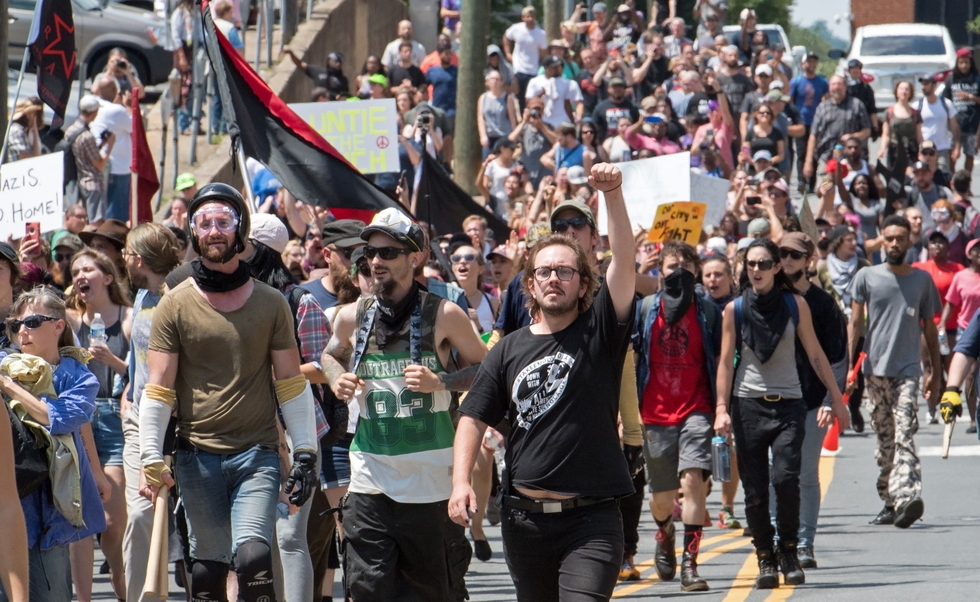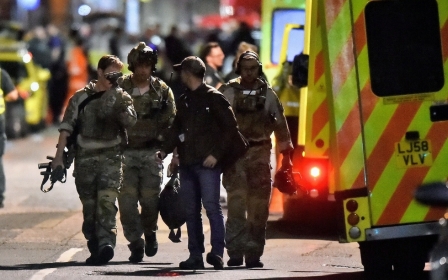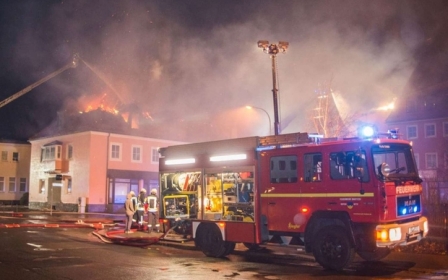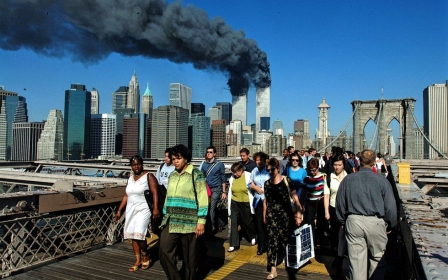ANALYSIS: US probe reminder that not all ‘terrorists’ are Muslim

NEW YORK, United States - The 9/11 anniversary is typically marked by sombre reflection on the victims of al-Qaeda’s savage showpiece of 2001. This will hold true on Monday, but its first recurrence since Donald Trump became US president is being framed by a debate over where the real threat now lies.
Observances come only weeks after rallies by neo-Nazis and other white supremacists in Charlottesville, Virginia, that led to the death of a woman counter-protester and re-ignited rows over whether the threat of Islamic terrorism has been overblown these past 16 years.
On Tuesday, the day after 9/11 services in New York, Washington and elsewhere, an annual confab of the House Committee on Homeland Security will add to its agenda of Islamist threats by discussing dangers posed by white supremacists and other radical nationalists.
Meanwhile, the top five House Democrats have urged Speaker Paul Ryan to establish a select committee on “the rise of white supremacy and domestic terrorism”. In a letter, they argued that Congress should study an “outbreak of hate” brought on by last year’s presidential election.
Trump’s delayed criticism of the white supremacists in Charlottesville and his apportioning of blame on “both sides” has raised questions over whether Republicans either sympathise with far right extremists or underestimate the risks they pose.
Under a Department of Homeland Security programme called Countering Violent Extremism, the Trump administration has pulled funding from groups tackling white supremacy, while keeping cash flowing to those that fight Islamic terrorism.
Opinions are divided in a polarised America. For Terry Strada, a 54-year-old mother-of-three whose husband died in the 2001 terrorist attacks, threats from the likes of al-Qaeda and the Islamic State (IS) group dwarf anything the Ku Klux Klan has to offer.
“I don’t think there’s a real comparison to what happened in Charlottesville and the threat of radical Islam that we face,” Strada, head of a group of bereaved 9/11 families, told Middle East Eye. “We need to be vigilant about allowing it not to grow and get out of control.
“But what I see happening in our country with the rise of political Islam is more than just murdering.”
David Sterman, an analyst at New America, a left-leaning think tank, disagreed. Recent events underscore the need for a “broader reappraisal of how we think about terrorist violence and what the threats from it are,” he said.
It’s not effective for the only determinant to be whether an individual shouts Heil Hitler or Allah Akbar the moment they shoot the gun
- David Sterman, a think tank analyst
Opinions are, in part, swayed by who defines what constitutes a "terrorist," how the toll is measured and how data is presented. One tally, by Alex Nowrasteh of the Cato Institute, a libertarian think-tank, stresses the Islamist threat.
Since 1992, terrorists have murdered 3,342 people on US soil, Nowrasteh says. Islamist militants, the deadliest group, were behind 3,085 (92 percent) deaths, far exceeding the 219 murders (6.6 percent) he ascribed to right wingers and nationalists.
Sterman, conversely, starts counting after 9/11.
In the years since then, Islamist militants have killed 95 people on US soil – a comparable death toll to other types of political violence. Far right extremists have claimed 68 lives in that period; black nationalists another eight.
For him, 9/11 was an outlier. The spectacle of terror by al-Qaeda leader, Osama bin Laden, claimed 2,977 lives “in a matter of hours” and “reshaped our politics and had enough gravity to define all jihadist terrorism” over the 16 years since, he said.
Islamist militants have attempted 9/11 reruns, such as bombings of a US-bound flight on Christmas Day 2009 and a car bomb in New York’s Times Square in 2010, but subsequent attacks planned and directed from overseas have failed, he said.
Instead, groups like IS have “inspired” and used the web to radicalise would-be terrorists in the US, but have not directly commanded military-style operations in America, as opposed to the directed attacks seen in Brussels and Paris.
These can still be deadly, such as Omar Mateen’s reportedly IS-inspired rampage in a Florida nightclub that claimed 49 lives in 2016. But without trainers and planners overseas, Mateen’s bloodbath was more akin to white supremacist Dylann Roof, who gunned down nine members of a black South Carolina church in 2015.
Though Islamist terrorists typically attempt mass-casualty strikes at everyday targets – such as busy streets and transit systems – right-wingers have attempted similar outrages in the US, Sterman said.
Had it detonated, a white supremacist’s pipe bomb at a black march in Spokane in 2011 may have proven as deadly as the 2013 Boston Marathon bombing, which was carried out by two self-taught Islamist militant brothers, he said.
Likewise, the car that James Alex Fields allegedly drove into a crowd in Charlottesville, killing 32-year-old local paralegal Heather Heyer, and injuring 19 others, echoed the vehicle-ramming Islamist militant murders seen recently in several European countries.
Policymakers should be more fact-based and less ideological, he said.
“We should make judgements based on the type of weapons used, the level of planning and interaction with a foreign terrorist organisation, either in person or online. It’s not effective for the only determinant to be whether an individual shouts Heil Hitler or Allah Akbar the moment they shoot the gun,” Sterman said.
It all comes down to politics, said Ryan Mauro, an analyst at the Clarion Project, which campaigns against militant Islam. The killing in Charlottesville was a wake-up call for both sides of the political divide – as fringes of both left and right commit violence, he said.
“Prior to that, I would personally encounter a widespread dismissal of the threat from each side, thanks to a tribal political mind-set where it seems each side bends over backwards to minimise the wrongdoing by their own and to emphasise the wrongdoing by the other,” Mauro told MEE.
Sterman, however, is not convinced much has changed. He sees little appetite for tackling violent white nationalists in a West Wing staffed by aides who have “dismissed the idea that far right terrorism existed or was meaningful”.
New MEE newsletter: Jerusalem Dispatch
Sign up to get the latest insights and analysis on Israel-Palestine, alongside Turkey Unpacked and other MEE newsletters
Middle East Eye delivers independent and unrivalled coverage and analysis of the Middle East, North Africa and beyond. To learn more about republishing this content and the associated fees, please fill out this form. More about MEE can be found here.




